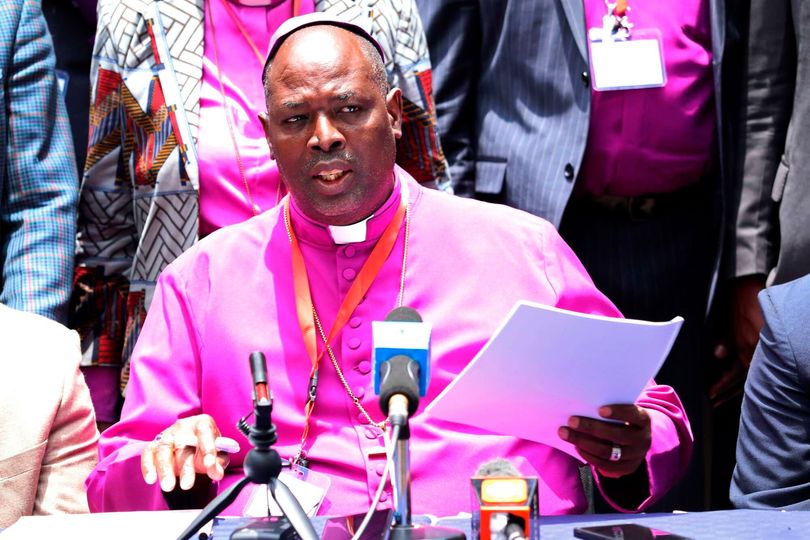Anglican Archbishop Jackson Ole Sapit has strongly criticised the government’s economic empowerment initiatives, branding them as politically motivated and ineffective. Speaking during a function at Limuru Girls High School, the Archbishop expressed concern that such programs, particularly those rolled out in sub-counties, do little to address the core needs of Kenyan citizens.
“Handouts will never change anybody’s life,” Ole Sapit said. “They will get it and finish it in the evening with the liquors and other bad habits.” Instead, he called for a shift in government spending towards more impactful sectors such as education, healthcare, and agriculture.
He emphasized that the current funding model for schools and universities is inadequate. “Our principals are crying because the capitation is not enough. They cannot keep our students as long as we wish them to be in school,” he noted, urging the government to prioritize capitation funding to ensure students remain in learning institutions.
The Archbishop further highlighted the need to empower citizens through sustainable systems rather than temporary relief. He pointed out that teaching people how to work and investing in infrastructure such as roads and markets would have a lasting economic impact. “What the government needs is to put all the money being spent in these barazas and even in these many campaigns — be it from the opposition or the government — into our schools,” he urged.
Ole Sapit also called for better support to the agricultural sector, noting that many farmers struggle due to poor market access and infrastructure. “We want the agriculture sector to work. The government should put infrastructure in place so that every farmer will have the opportunity to take their produce to market in time,” he said.
In addition to his economic concerns, the Archbishop condemned the rise in political violence, warning that it threatens national unity and democratic progress. He called on all Kenyans to safeguard democratic spaces and uphold peace, particularly during politically tense periods.
His remarks come amid growing public scrutiny over government spending priorities and the effectiveness of economic empowerment programs across the country.

